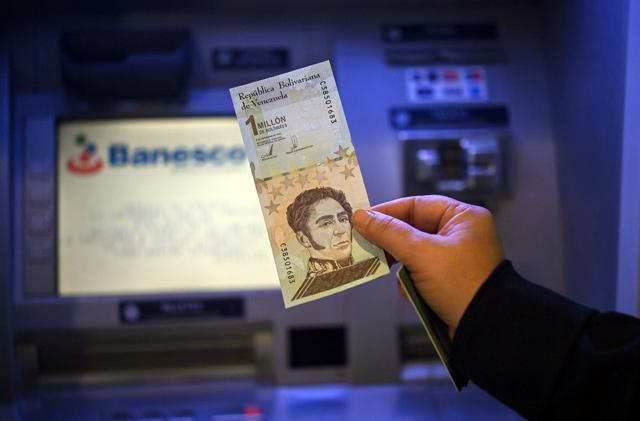You are here
Cash is king in Venezuela property market as loans elude would-be buyers
Sep 12,2021 - Last updated at Sep 12,2021
By Javier Tovar
Agence France-Presse
CARACAS — Gustavo Martinez has a stable job as an engineer at an oil company in Caracas, but he can only dream of buying an apartment because Venezuela's inflation, the highest in the world, has crippled real estate financing.
With banks not offering loans, would-be homeowners are expected to pay for property in a single or handful of installments, using wire transfers, cheques and even briefcases full of US dollars.
The national currency, the bolivar, has lost 73 per cent of its value to the dollar so far this year, and a single US dollar now costs 4 million bolivars.
The greenback, though not official currency, is widely used to pay for goods and services across Venezuela and it is the only accepted means of payment in real estate transactions.
But in a country with a minimum public service wage of just $2 per month, Venezuelans often cannot afford even to rent and many young adults, including couples, end up living with their parents much longer than they had planned.
Venezuela's eye-watering inflation, hovering around 3,000 per cent, means that banks are loath to risk giving out loans in bolivars. In the rare event they do, the repayment period is generally under six months.
There are no credit cards, either.
In January, the government said banks could give out loans in dollars only with the permission of the Central Bank, making it a near-impossibility.
'No job pays you that'
As a result, Venezuelan banks have given out only $140 million in loans to a population of some 30 million, compared to $14 billion in loans in neighbouring Colombia, which has some 50 million people.
Of the total loan amount, only $840,000 or 0.6 per cent, were mortgage loans, based on official figures released in March.
Economist Cesar Aristimuno said this was a sharp drop from 7.2 per cent in 2014, before a global crash in oil prices tanked Venezuela's economy, heavily dependent on crude exports.
Martinez, the oil company engineer in Caracas, is luckier than most.
After moving to the capital in January, he lived with his grandmother for a while but is now renting an apartment with his girlfriend.
Martinez, 30, did not want to reveal how much he earns, but he said it is more than the average Venezuelan salary of $50 a month. Apartment rents in a modest suburb of the capital start from $150, according to realtor Carolina Quintero.
"An apartment costs about $50,000 dollars. No job pays you that," Martinez told AFP. "Much less will you be able to pay it in a single installment."
The figure he mentioned can buy a flat of about 74 square metres in a middle-income neighbourhood in Caracas.
There are no public figures on how many Venezuelans live at home into their 30s or 40s, but it is a widely-observed phenomenon.
'Something of my own'
While buying a home remains a distant dream for most Venezuelans, the country's eager, though informal, adoption of the dollar as a shield against inflation has given the real estate sector at least a bit of a boost over the past two years.
"In 2019, we grew 5 per cent and we hope to close with more than 20 per cent in 2021," says Francisco Lopez, president of the Real Estate Chamber of Venezuela.
Most transactions, explained Quintero, are conducted via transfers from foreign banks, though buyers may be required to provide a deposit of up to 20 per cent in cash.
A growing number of properties are being bought and sold on social media by agents who provide their own down payment options, such as requiring an initial investment of a third of the purchase price, with 11 months to pay the rest.
Of course, there are the loan sharks, charging 15 per cent per month in interest and demanding guarantees that can triple the amount of the loan to be paid back.
Martinez still hopes to buy "something of my own" one day, and he said he was dabbling in small-scale investments as a way of saving some money.
"It would have been great if there was a system of loans in dollars so that people who can afford the down payments can get credit," he said.
Related Articles
It is the third banknote reform in 13 years, with a staggering 14 zeroes shed since 2008 — giving Venezuela the "dubious" distinction of becoming the South American country to have lopped the most zeroes off its currency.
Venezuela will repay a small part of its debt to local importers, after currency controls have sparked mass shortages of basic goods in the oil-rich country.
President Nicolas Maduro shook up complex currency controls on Wednesday and also prepared Venezuelans for a rise in the world's cheapest fuel prices in response to a recession worsened by plunging oil revenue.
















